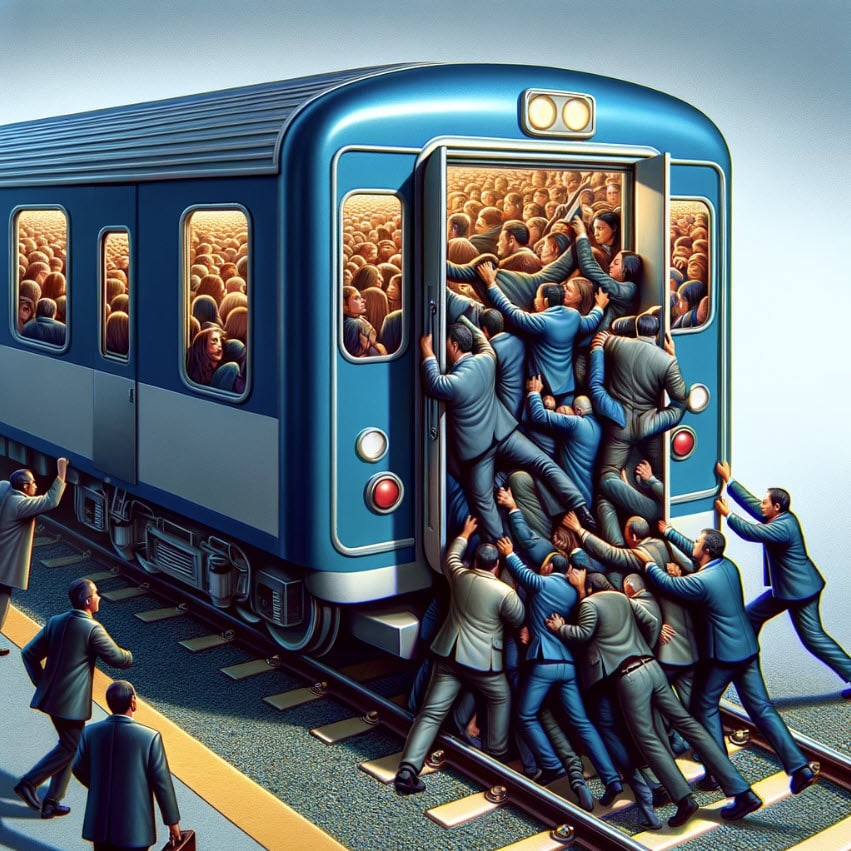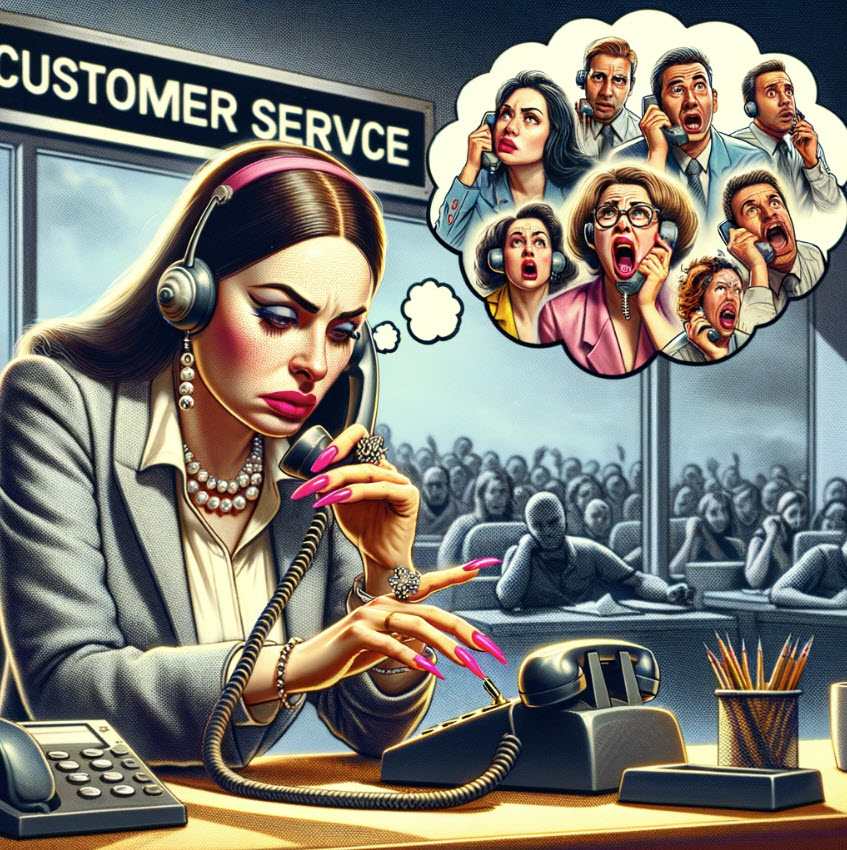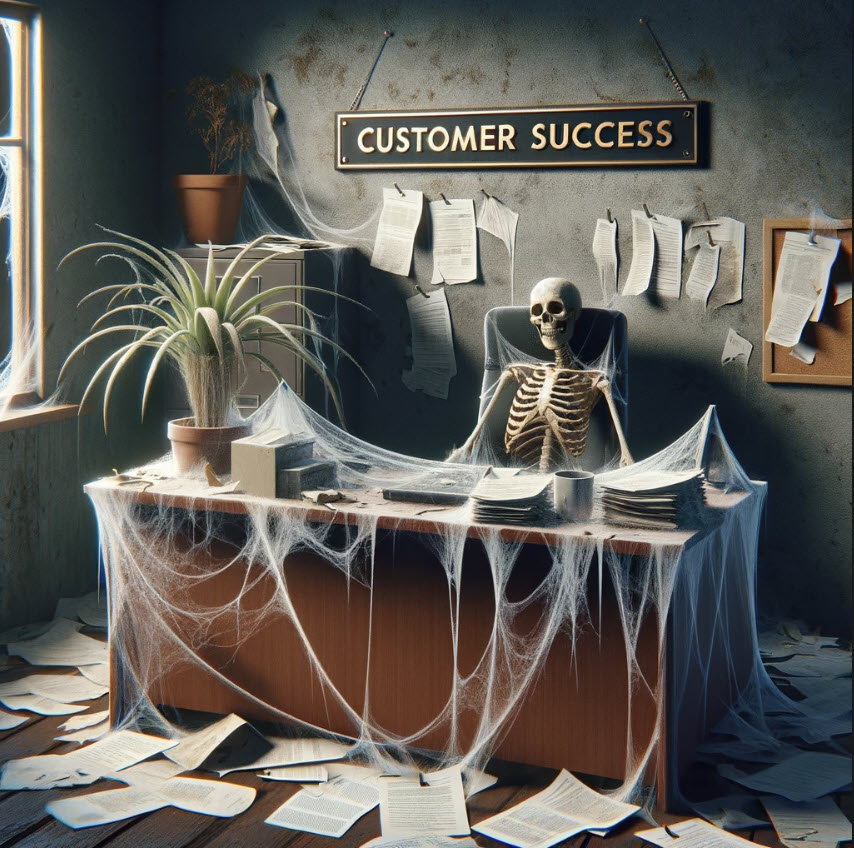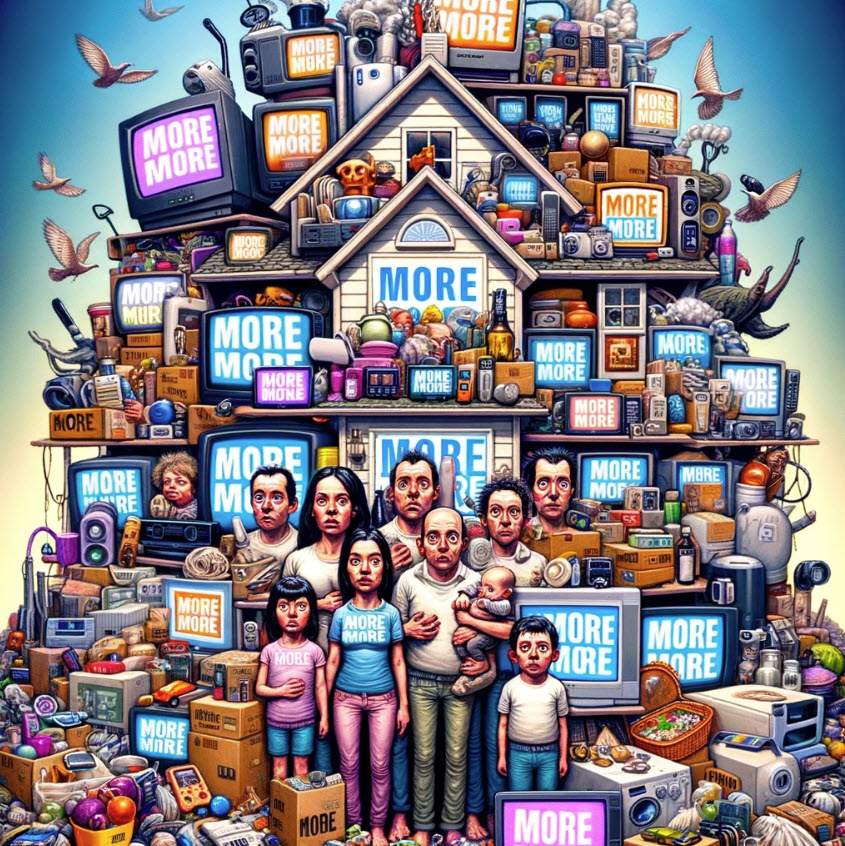In a world intoxicated by the insatiable thirst for “more” — more profit, revenue, productivity, and efficiency — it’s time to shatter the illusion that this unbridled hunger is an inherent right.
Companies often pay lip service to accountability, but their actions speak louder than their carefully crafted mission statements. They continue to lay waste to our environment, take precious natural resources, obliterate entire habitats, destabilize communities, and, in the process, dishearten and abuse countless individuals.
This reckless march towards “more” has reached a tipping point; we can no longer afford to turn a blind eye. We urgently need a paradigm shift, a radical departure from the destructive norm. It’s time for leaders to step up, take full responsibility for their actions, and be held personally accountable and liable for any transgressions.
It’s time for responsible growth.
Images speak louder than words. We asked ChatGPT to create these images.
The Illusion Weaved by Marketing: A World Apart

The Marketing department often finds itself at the forefront of crafting captivating narratives that transcend mere product promotion. Their primary role goes beyond selling; it’s about storytelling. These narratives are meticulously designed to resonate with consumers, promising solutions to their pains.
However, the stark disparity between these carefully constructed perceptions and the grim reality beneath them is often staggering. Behind the scenes, the production and delivery of these products frequently come at an unspoken cost to the environment and society.
The inconvenient truth is that many companies externalize the true price of their products, concealing the ecological and societal toll of their operations. Transparency about material sourcing, production waste, and post-consumer disposal is often lacking. In this world of marketing-driven illusions, we must peel back the layers and confront the harsh reality that lurks beneath the surface.
The Cost of Sales Targets: Pushing Beyond Ethical Limits

In commerce, the Sales department is pivotal in building trust and persuading potential customers to embrace a company’s products or services. Yet, the often-unspoken truth is that even when fully aware of product deficiencies or deplorable customer service, salespeople are under immense pressure to meet ambitious targets. It’s a relentless race driven by the company’s insatiable hunger for growth.
These targets, akin to the infamous “pushers” in Japanese train stations, known officially as “Oshiya,” relentlessly shove individuals through the sales pipeline, regardless of the consequences. The relentless push from above, the incessant drive to outperform projections, extract a heavy toll — on the well-being of the salespeople, the integrity of customer service, the health of consumers and buyers, and the environment itself. The cost goes far beyond the ledger, impacting lives and our world.
Customer Service: The Forgotten Promise

Customer Service is a critical business component, inherently intertwined with the product. While Marketing and Sales primarily engage with prospects and leads, Customer Service is the first point of contact with customers and their underlying needs or “jobs to be done.” Their mission is clear: ensure any issues related to the product, its functionality, or its delivery are swiftly resolved, in alignment with the brand’s promises.
However, the reality often diverges from this noble aspiration. Many companies seek to cut corners and minimize costs, relegating Customer Service to the shadows, hidden behind impersonal and unhelpful facades. The frustration experienced by customers is palpable as they endure endless waits on hold, caught in a maze of automated responses that seem designed to deflect rather than assist.
In this clash between brand promise and customer experience, the cost of neglecting customer service is borne by frustrated customers and the brand’s integrity.
Customer Success: An Investment in the Future

The Customer Success department stands as a beacon of proactive care and support. They must ensure customers benefit most from their purchases. In this realm, attention is laser-focused on the most valuable customers, whose spending and satisfaction are pivotal to the company’s overall success.
It’s an approach that comes at a cost and must be wielded judiciously to avoid spiraling expenditures. However, the rewards are substantial, both for the customer and the organization. Content and thriving customers tend to be loyal, spending more frequently and abundantly, and acting as enthusiastic brand advocates.
Yet, the practice of Customer Success is an investment in the future, a long-term commitment that may challenge those fixated on immediate profits. What begins as a brilliant concept can easily be cast aside and neglected, despite its potential to shape a brighter tomorrow.
Beyond Buying Stuff: From More to Meaningful

In a world where consumers are enticed by marketing promises and persuaded by relentless sales tactics, the pursuit of needless possessions has become a widespread affliction. Edward Bernays once reshaped consumer desires, shifting the focus from necessity to desire. The result? An era defined by gluttony and greed.
Marketers dangle the illusion of happiness tied to product ownership, often misconstrued as fragments of joy. Yet, consumers, trapped in this cycle of irresponsible growth, find their willingness to participate inextricably linked to the hollowness of their contributions and the remorse for the harm inflicted on society and the environment.
We’re caught in a consumer frenzy, and the only way out is to demand work that means something—work that’s more about changing lives than just paying bills. Joy emerges when your job is not just a job but a calling that overshadows the endless chase for stuff.
It’s high time we wake up from the fairy tale we’ve been sold, the so-called ‘American Dream.’ It’s a story spun by experts paid by those who only see dollar signs, convincing us to buy things we don’t need with money we don’t have.
Meanwhile, the gap between the super-rich and everyone else is wider. Clearly, this dream they’ve been selling is bait, hooking us into throwing away our cash on stuff that never really fills the void.
We need a fundamental change, a shift to find joy in what we do, not what we own.
It’s about making our work count for something bigger than just the next purchase.
The call to action is clear: Break the cycle now.

Author
-
Edwin Korver is a polymath celebrated for his mastery of systems thinking and integral philosophy, particularly in intricate business transformations. His company, CROSS-SILO, embodies his unwavering belief in the interdependence of stakeholders and the pivotal role of value creation in fostering growth, complemented by the power of storytelling to convey that value. Edwin pioneered the RoundMap®, an all-encompassing business framework. He envisions a future where business harmonizes profit with compassion, common sense, and EQuitability, a vision he explores further in his forthcoming book, "Leading from the Whole."

